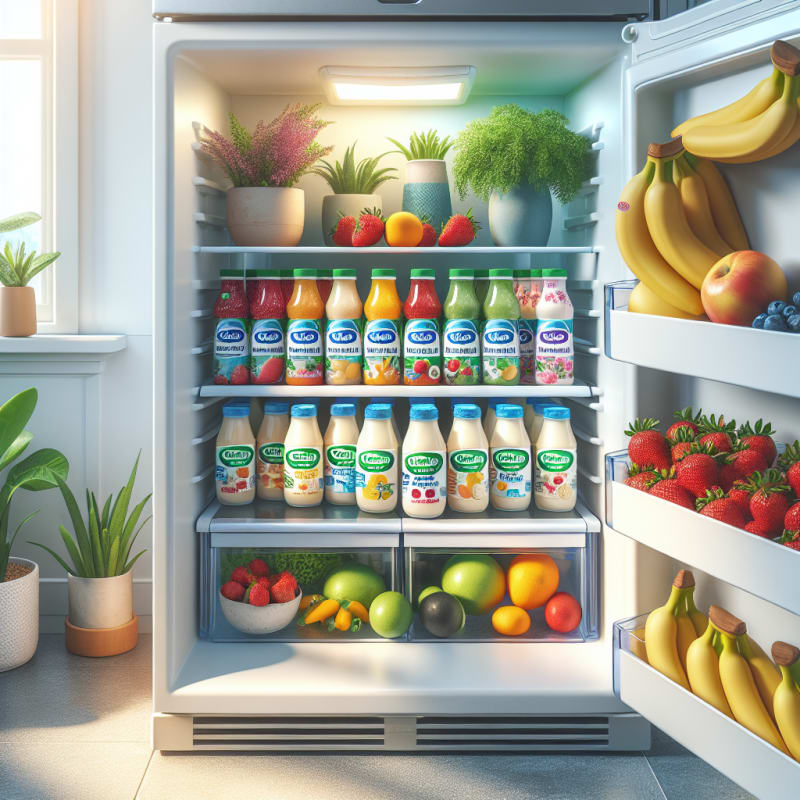Is Yakult FODMAP-Friendly? Science, Ingredients, and Global Insights
Category: Lactose / FODMAP / Allergies
For readers seeking clarity on Yakult and its compatibility with FODMAP-sensitive diets, this article offers a comprehensive, evidence-based perspective.
Introduction: Navigating Food Ingredients in a Globalized World
In an era of international food brands and complex dietary needs, consumers are increasingly vigilant about what they eat. Whether due to lactose intolerance, FODMAP sensitivities, or allergies, understanding the composition of popular products like Yakult is crucial. This article addresses the question: is Yakult FODMAP-friendly? We analyze the science, compare international ingredient lists, and provide practical guidance—empowering you to make informed decisions, wherever you shop.
What Is Yakult?
Yakult is a fermented milk drink originating from Japan, containing the probiotic strain Lactobacillus casei Shirota. Marketed globally, it is lauded for its potential gut health benefits. However, its suitability for those with lactose intolerance, FODMAP sensitivities, or food allergies is less clear.
- Primary ingredients: Skimmed milk, glucose (or sucrose), water, live probiotic cultures, and flavoring.
- Market presence: Sold in over 40 countries, with variations in formulation and labeling.
What Are FODMAPs?
FODMAPs are a group of short-chain carbohydrates—Fermentable Oligosaccharides, Disaccharides, Monosaccharides, and Polyols—that can trigger digestive symptoms in sensitive individuals. The Monash University Low FODMAP Diet is the leading protocol for managing irritable bowel syndrome (IBS) and related conditions1.
| FODMAP Type | Common Sources |
|---|---|
| Oligosaccharides | Wheat, onions, garlic |
| Disaccharides | Lactose (milk, yogurt) |
| Monosaccharides | Fructose (apples, honey) |
| Polyols | Sorbitol, mannitol (stone fruits, sweeteners) |
For those with FODMAP sensitivities, even small amounts of certain ingredients can provoke symptoms.
Is Yakult FODMAP-Friendly? A Scientific Analysis
1. Lactose Content in Yakult
Yakult is made from skimmed milk, which contains lactose—a disaccharide FODMAP. However, the fermentation process reduces lactose levels as Lactobacillus casei Shirota bacteria consume lactose to produce lactic acid. According to research published in PubMed, fermented milk products typically have lower lactose than unfermented milk2.
- Yakult (original, 65ml bottle): Contains approximately 1.0–1.3g lactose per serving.
- Low FODMAP threshold for lactose: 1g per serving (per Monash University).
Conclusion: Yakult is borderline low-FODMAP per serving, but sensitive individuals should monitor their tolerance.
2. Added Sugars and Other Carbohydrates
Yakult contains added glucose or sucrose, which are not FODMAPs. However, excessive sugar intake can affect gut health and should be considered, particularly for those with IBS or metabolic concerns3.
3. Probiotic Content and Digestive Health
The probiotic strain in Yakult may aid lactose digestion and improve gut microbiota balance. According to the European Food Safety Authority (EFSA), certain probiotics can help mitigate symptoms of lactose intolerance4.
Key point: While probiotics can be beneficial, they do not eliminate FODMAP content.
Yakult Ingredients: US vs EU vs Asia
| Region | Yakult Ingredients | Labeling Authority |
|---|---|---|
| United States | Water, skim milk, glucose, sucrose, live L. casei Shirota, natural flavors | FDA |
| European Union | Water, skimmed milk powder, sugar, glucose-fructose syrup, live L. casei Shirota, flavorings | EFSA / National Agencies |
| Japan / Asia | Water, skim milk, sugar, live L. casei Shirota, flavors | Japan Food Sanitation Act |
Labeling laws differ: The FDA in the US and EFSA in Europe require clear disclosure of allergens and nutritional content, but ingredient order and terminology may vary.
- US Yakult: Lists “milk” as an allergen; lactose content is not specified on the label.
- EU Yakult: May use “skimmed milk powder” and “glucose-fructose syrup,” which can affect FODMAP content.
- Asia Yakult: Typically uses simple ingredients, but labeling may be less detailed.
Implication: Always check local ingredient lists and allergen statements, especially when traveling or purchasing imported products.
Yakult and Food Allergies: What to Know
Yakult contains cow’s milk, making it unsuitable for those with milk allergies. It is gluten-free and does not contain common nut or soy allergens. However, cross-contamination is always possible in manufacturing.
- Milk allergy: Avoid Yakult; seek dairy-free probiotic alternatives.
- Lactose intolerance: Some may tolerate Yakult due to reduced lactose, but individual response varies.
- FODMAP sensitivity: Monitor symptoms and consider portion size.
How Food Scan Genius Helps People with Food Sensitivities
Navigating ingredient lists and allergen statements can be daunting, especially when products differ across markets. The Food Scan Genius app empowers users to make safer choices:
- Scan barcodes to instantly check for FODMAPs, lactose, and allergens in thousands of products, including Yakult.
- Personalized profiles allow you to set dietary preferences and receive tailored alerts.
- International database covers US, EU, and Asian products—ideal for travelers and expats.
“I travel frequently and have IBS. With Food Scan Genius, I can scan Yakult or any snack and know instantly if it’s FODMAP-friendly in that country. It’s a lifesaver!”
— Maria, Food Scan Genius user
Download Food Scan Genius to take the guesswork out of shopping for food sensitivities.
Frequently Asked Questions: Is Yakult FODMAP-Friendly?
- Is Yakult suitable for a low-FODMAP diet?
- Yakult contains a small amount of lactose (1.0–1.3g per 65ml bottle). This is near the low-FODMAP threshold, but some highly sensitive individuals may react. Always test tolerance and consult a healthcare provider.
- Does Yakult contain gluten or soy?
- No, Yakult does not contain gluten or soy ingredients. However, always check labels for regional variations.
- Is Yakult dairy-free?
- No, Yakult is made from skimmed milk and is not suitable for those with a milk allergy or strict dairy-free diets.
- Can probiotics in Yakult help with lactose intolerance?
- Some studies suggest that probiotics may aid lactose digestion, but they do not eliminate lactose entirely. Tolerance varies by individual.
- How can I check if Yakult is safe for me?
- Use the Food Scan Genius app to scan Yakult and receive instant feedback based on your dietary needs.
Conclusion: Ingredient Awareness Empowers Better Choices
In a global food marketplace, understanding product ingredients is essential—especially for those managing lactose intolerance, FODMAP sensitivities, or allergies. While Yakult is nearly low-FODMAP per serving, individual tolerance varies, and regional ingredient differences matter. Leveraging technology like Food Scan Genius removes uncertainty, enabling you to shop and eat with confidence, wherever you are.
Stay informed, scan smart, and enjoy food without fear.





